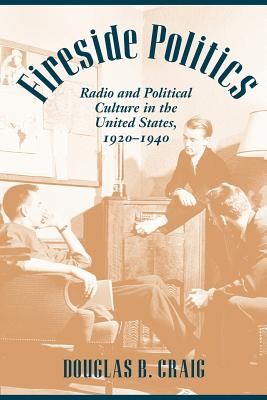
- We will send in 10–14 business days.
- Author: Douglas B Craig
- Publisher: Johns Hopkins University Press
- ISBN-10: 0801883121
- ISBN-13: 9780801883125
- Format: 15.2 x 22.9 x 2.2 cm, softcover
- Language: English
- SAVE -10% with code: EXTRA
Reviews
Description
In Fireside Politics, Douglas B. Craig provides the first detailed and complete examination of radio's changing role in American political culture between 1920 and 1940--the medium's golden age, when it commanded huge national audiences without competition from television. Craig follows the evolution of radio into a commercialized, networked, and regulated industry, and ultimately into an essential tool for winning political campaigns and shaping American identity in the interwar period. Finally, he draws thoughtful comparisons of the American experience of radio broadcasting and political culture with those of Australia, Britain, and Canada.
EXTRA 10 % discount with code: EXTRA
The promotion ends in 17d.03:12:05
The discount code is valid when purchasing from 10 €. Discounts do not stack.
- Author: Douglas B Craig
- Publisher: Johns Hopkins University Press
- ISBN-10: 0801883121
- ISBN-13: 9780801883125
- Format: 15.2 x 22.9 x 2.2 cm, softcover
- Language: English English
In Fireside Politics, Douglas B. Craig provides the first detailed and complete examination of radio's changing role in American political culture between 1920 and 1940--the medium's golden age, when it commanded huge national audiences without competition from television. Craig follows the evolution of radio into a commercialized, networked, and regulated industry, and ultimately into an essential tool for winning political campaigns and shaping American identity in the interwar period. Finally, he draws thoughtful comparisons of the American experience of radio broadcasting and political culture with those of Australia, Britain, and Canada.


Reviews